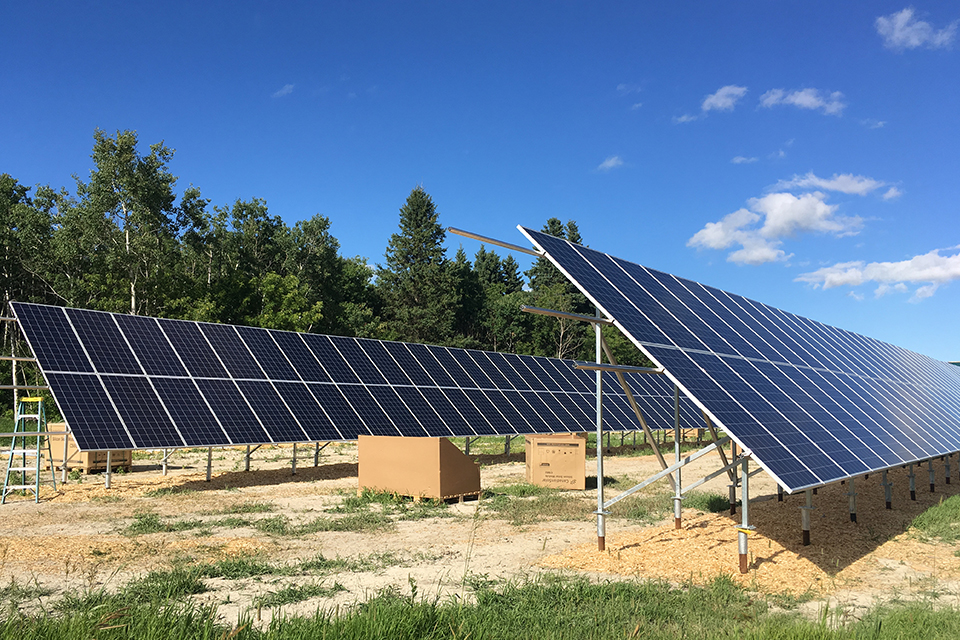
Green farming? Meet a farmer leading the way
By Egg Farmers of CanadaWith Earth Day coming up, it’s an ideal time to reflect on our impact on the environment and climate change—one of the defining challenges of our century. In the words of former UN Secretary-General Ban Ki-moon, “climate change does not respect borders; it does not respect who you are—rich and poor, small or big. This is a global challenge which requires global solidarity.”1 Canada is only part of the global emissions picture, but we’re doing our part. We are today the fourth-largest generator in the world of environmentally friendly power2, and every Canadian aspires to do better.
Part of that pan-Canadian progress is the work of Canadian egg farmers to green the power used on their farms. It’s a new wave in the history of egg farming and a vital wave given the electricity needs of barns. Backed by the stability and predictability offered by supply management—a system that allows farmers to plan for capital investments in important infrastructure like green power—the green shift is happening across rural Canada.
One such farmer at the cutting edge of this new wave is Manitoba’s Abe Loewen. He recently invested in solar panels to heat and cool the family home, alongside his entire barn—home to 12,600 hens. We chatted with Abe about his big leap into green and why he knows it’s the future of the industry.
Abe Loewen first bought his egg farm in 1999. “We were cattle producers before that, and started farming in 1991,” says Abe. The ‘we’ here is Abe and his wife Trudy, who have been working with hens for about 20 years and were married just a year before the pair began farming.
Prior to 1999, Abe and Trudy were working his father-in-law’s land—and there simply wasn’t enough land to go around.
“I always thought chickens would make a nice living for us if we could get into it,” Abe says. “So when a farm came up for sale, we put an offer in.”
We asked Abe what joining the egg industry felt like: “Just amazing.”
“It meant stable work, and we could make a fair return. I was so happy to become an egg farmer.”
“It was all because of supply management,” Abe notes.

Two decades later, it was that same stability that helped put Abe’s farm through a green shift: the installation of an array of solar panels. The shift began with Abe’s son Dylan. He attended an agriculture show in Brandon, Manitoba, where he learned more about the possibilities of solar power on farms.
“Dylan showed me the numbers,” Abe recalls. “Basically, the panels pay for themselves after 12 years, and we get free power after that.”
The notion of power that pays for itself is enticing for farmers like Abe. “Power on the barn is extremely expensive,” says Abe.
But the investment is so much more. “Doing what is good for the environment, being a good, smart steward of the land, I really enjoy that work,” Abe articulates. He recommends solar energy to his fellow farmers, for the fact alone that it has a positive impact on the environment. But every revolution needs leaders—it’s farmers like Abe Loewen and Darrel Mandel who inspire others.
“The industry is already a leader in environmental stewardship,” Abe says with pride.
“You don’t cover too much land with egg farming, you don’t need a big base. It’s a very good thing how positive egg farming is for the environment.”
If you want to see just how positive egg farming’s environmental progress really is, you’ve got to check out Our Sustainability Story—it’s an area where Canada’s egg farming industry shines!